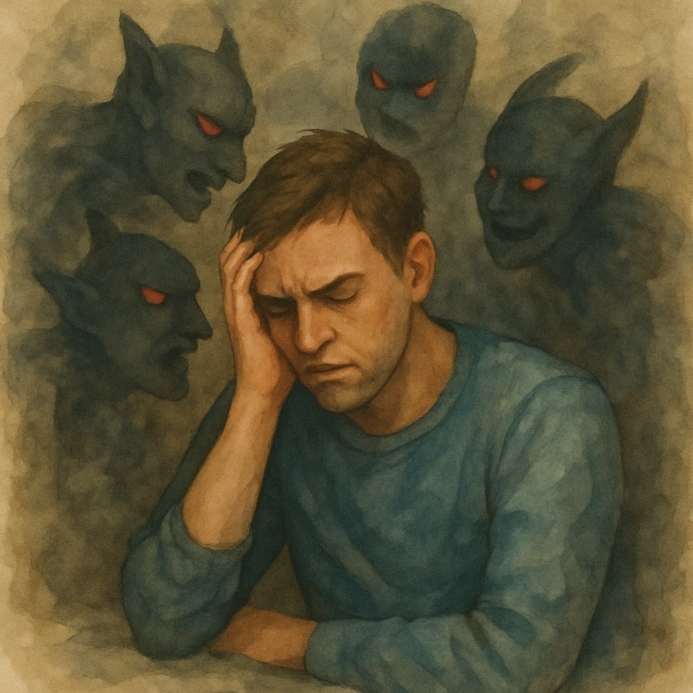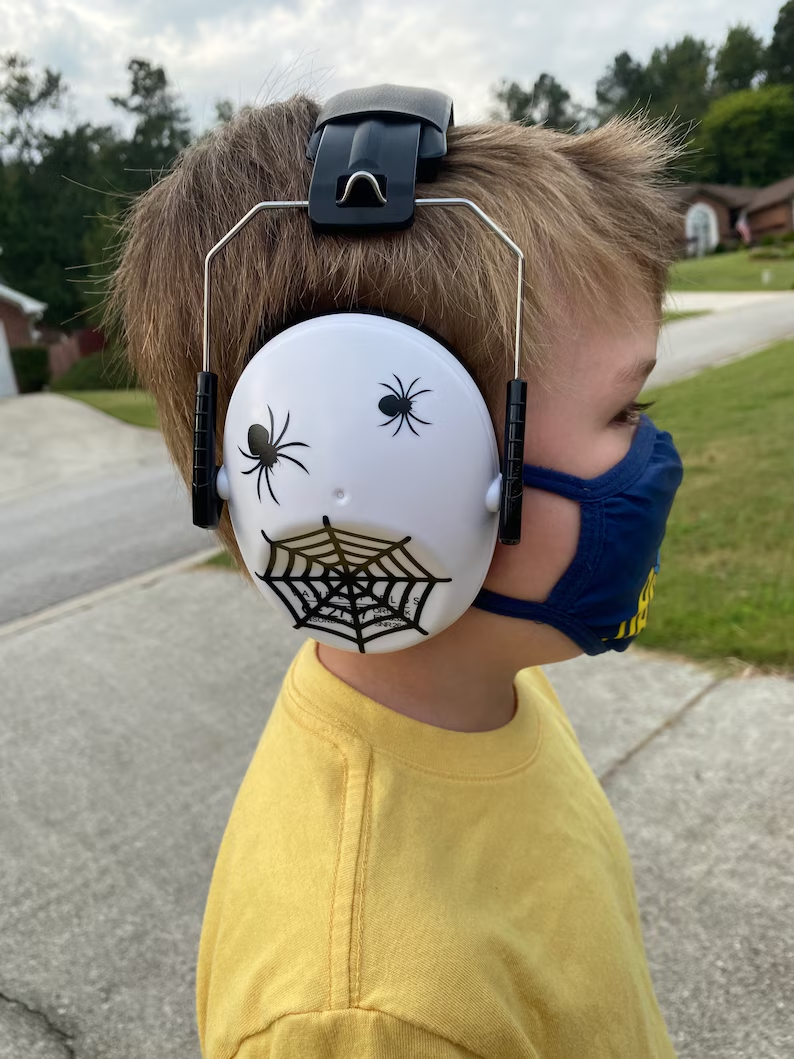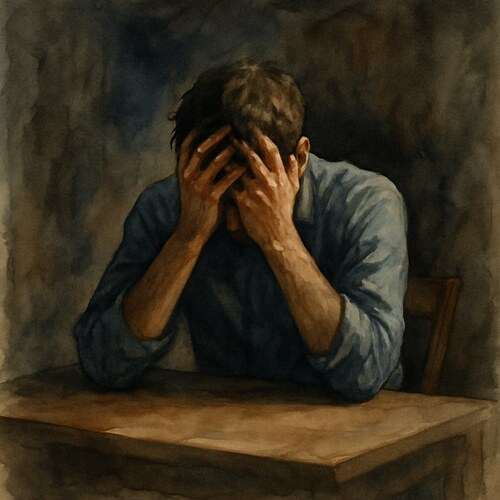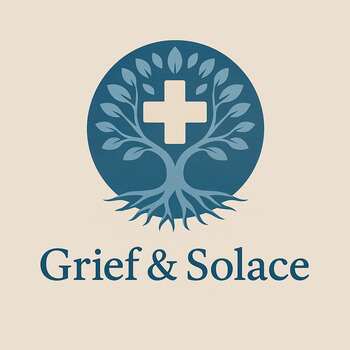Grieving Schizophrenia: Mourning the Mind That Slipped Away
Grief with schizophrenia is a slow shattering, watching someone lose touch with reality, and mourning the parts of them they can no longer find.

This post blends real grief with grounded knowledge. It isn’t clinical. It isn’t distant. It’s meant to sit beside you—not above you. The story you’ll read is meant to reflect what so many feel when living through or witnessing this condition: confusion, exhaustion, and quiet forms of courage.
If what you read feels familiar, please speak with your doctor. Your pain deserves more than silence.
I Lost Him to a World Only He Could See
He was always the quiet one…sharp, observant, the kind of kid who noticed the things most people missed. He’d sit at the edge of conversations, head tilted, as if he was listening to something just beyond our grasp.
At first, I mistook it for daydreaming. Then it morphed into muttering. Before long, he was holding entire conversations with no one in the room.
He began locking his bedroom door, staring out the windows for hours on end. He stopped sleeping, stopped trusting.
🧠 Symptoms:
– Delusions: false beliefs, such as persecution, grandeur, or impending disaster
– Hallucinations: most often auditory (hearing voices), but can involve sights or sensations
– Disorganized thinking and speech: incoherent responses, derailment, or “word salad”
– Abnormal behaviors: agitation, silliness, or catatonia (lack of movement or response)
– Negative symptoms: flat affect, social withdrawal, lack of motivation, reduced speech, anhedonia (loss of pleasure)
In teens, symptoms can resemble depression or drug use, including withdrawal from others, poor school performance, sleep disturbances, mood swings, and decreased motivation.
He claimed people were watching him, that the lights weren’t safe, and that his thoughts no longer belonged to him.
I thought it might be stress, possibly drugs, or even burnout. But he was burning inward, collapsing into himself, one thought at a time.
The diagnosis arrived with more fear than relief: schizophrenia.
No one really prepares you for what that entails until it’s too late. It’s not just the hallucinations or the voices; it’s the disintegration of self, of reality, of the delicate thread that holds a life together.
He didn’t act crazy; he acted haunted…
Sometimes he’d cry without knowing why. Other times, he’d laugh in a room so quiet it hurt. Occasionally, he’d speak in riddles, invent words, accuse us of things we hadn’t done.
And then, there were those fleeting, beautiful moments when he returned, soft-eyed and clear—like he’d stepped out of a storm just to visit.
Complications:
– Higher risk of suicide and self-harm
– Substance misuse
– Depression, anxiety, OCD
– Social isolation and homelessness
– Victimization or legal issues
– Inability to care for self or recognize illness (anosognosia)
He didn’t vanish all at once. He drifted…until the line between here and there blurred. And I stayed at the edge, calling his name, hoping the wind would carry it far enough.
Causes:
The exact cause is unknown, but likely involves a combination of genetics, neurochemical imbalances (dopamine and glutamate), brain structure differences, prenatal complications, and environmental stressors.
Those days were the hardest, as they reminded me of everything we had lost.
The medication helped at times, but it dulled his mind, made his hands shake, and rendered him too sleepy to speak. He hated it and said the pills stole his thoughts in a different way.
I didn’t know how to argue against that. Perhaps he was right.
He was hospitalized twice, once for his safety and once for ours. Both times, he looked at me as if I were the traitor, and perhaps I was.
I mourned him while he was still alive, grieving the son I had raised while learning to love the one who remained.
He lives with it now…not cured, not whole, but still here, still walking, still trying to find peace with a mind that turns mirrors into mazes.
Risk Factors:
– Family history of schizophrenia or psychosis
– Early drug use (hallucinogens, cannabis, stimulants)
– Pregnancy complications (low birth weight, infection)
– Trauma, neglect, or high-stress environments
– Poverty and urban upbringing
📘 Diagnosis & Treatment
Diagnosis
– Physical and neurological exam to rule out other causes
– Toxicology screening for substance-induced psychosis
– Brain imaging (MRI or CT) if needed
– Psychiatric evaluation focusing on hallucinations, delusions, disorganized thinking, and history
– Usually diagnosed in late teens to early 30s, more common in males
Treatment
Medications
– Antipsychotics are the mainstay:
– Second-generation (fewer motor side effects): aripiprazole, olanzapine, risperidone, quetiapine, clozapine
– First-generation: haloperidol, chlorpromazine, fluphenazine
– Long-acting injectables for adherence (risperidone, paliperidone)
– Adjunct medications: antidepressants, mood stabilizers, anti-anxiety drugs
Psychosocial interventions
– Individual therapy, social skills training, family therapy
– Supported employment or vocational rehabilitation
– Case management for housing, finances, transportation
Hospitalization may be necessary during acute episodes or if safety is at risk.
Electroconvulsive therapy (ECT) can be used in severe or treatment-resistant cases.
Living With It
Schizophrenia is not madness—it’s a fracture in the mind’s glass. It distorts reality, shattering voices and sights into echoes only you can hear. It’s the betrayal of your own thoughts and truths, not chaos but confusion. You’re told you’re sick, yet sometimes the sickness offers clarity—an uninvited, relentless visitor.
Medication can dull the voices, but also blur your sense of self. Society’s suspicion, stigma, and silence deepen the wounds. You may lose jobs, friends, or family—yet you endure. With consistent treatment, support, and love that remains, survival becomes a quiet act of courage—an extraordinary strength in the face of invisible battles.
I know this is heavy, and I understand that the road ahead may feel like a tangle of loss and unanswered questions. But please hear this: you are not broken because you are hurting; you are not weak because you are afraid. You are living through something real, and survival itself is a kind of grace. You are allowed to struggle, you are allowed to hope, and you are allowed to not have all the answers today. Whatever comes next, you do not face it empty-handed; you carry every moment of love that shaped you, and that will always be enough to keep going.
🎀 Gifts to help With Schizophrenia
🏥 Everyday Comforts for Everyday Battles
Managing Schizophrenia often means needing a little extra help.
Sometimes it’s about restoring dignity, ease, or simply getting through the day with less pain.
These carefully chosen tools aren’t just items; they’re small bridges back to living.
This section is about finding practical support, never shame.
Noise-Reducing Over-Ear Headphones – Shelter From a World That’s Already Too Loud Inside
Schizophrenia can heighten sensory sensitivity, make background noise unbearable, and worsen auditory hallucinations. These over-ear headphones offer noise reduction and soothing isolation for overwhelming environments—public transit, hospitals, crowds, or even home. Not to silence the voices, but to control what else tries to talk over them.
🌿 Paths to Healing Beyond the Map
Sometimes traditional medicine isn’t enough.
If you’re exploring gentle, alternative options to help with Schizophrenia,
you might find comfort in plant-based compounds like **CBD or CBG**.
*This section is not medical advice, just a door left open.*
USA Medical Calm + Sleep Total Pack – Nervous System Support for a Brain in Constant Battle
Schizophrenia brings sleep disruption, anxiety, and nervous system overload. This Total Pack blends CBD, sleep aid, and calming botanicals to help ease agitation and support better rest without interfering with meds. It’s not treatment. But it’s a breath between the noise.
Need a Different Path Forward?
Every journey through grief looks different. Choose the next step that speaks to where you are now:
When You're Ready to Start Healing
Healing doesn’t mean forgetting.
It means finding small ways to carry your grief with strength and grace.
These are the stories, tools, and gentle steps to begin walking forward…at your own pace.
When You're Still in the Thick of It
Sometimes healing feels like a lie.
If you’re not ready to move on…if the pain still roars louder than the world wants to hear…this is the place where you’re allowed to feel it.
No sugarcoating. No pretending. Just truth.
When You're Holding on to Who’s Still Here
Grief reminds us to love louder.
If someone you love is still with you, this is your place to celebrate them, honor them, and create new memories while there’s still time.
Joy and sorrow can live side by side.






